Investment expenditure for press development accounts for less than 0.3% of total state budget investment expenditure.
Over the years, press agencies nationwide, including radio, television, print and electronic newspapers, have seriously implemented the leadership, direction and information orientation of the Party and State; promptly, honestly and comprehensively informed and propagated political , economic and social life at home and abroad; been the mouthpiece of the Party and State, a truly trustworthy forum for the people, and an essential means of mass communication for social life.
Along with certain successes in recent times, it is undeniable that currently, the situation of "newspaperization" of magazines, "newspaperization" of general electronic information sites, even signs of "privatization" of newspapers, receiving funding to influence the press and media for profit purposes is happening. There is a phenomenon of reporters "making money" from businesses or exchanging articles and links through advertising contracts, sponsorships... Many reporters have been caught up in the law when discovered and denounced. Although it is a single bad apple that spoils the barrel, this phenomenon has caused society to misunderstand the press and affected the reputation of other genuine journalists.

"Only when there are specific regulations can press agencies promote their economic role and do journalism business in a healthy way, contributing to creating a green press environment as we desire," Dr. Dong Manh Hung affirmed.
According to statistics: From 2017 to 2022, the Ministry of Information and Communications conducted 65 inspections, 48 checks; issued 306 decisions on administrative sanctions with a total amount of VND 8,618 million.
At the National Scientific Conference "Scientific basis and practice of amending the 2016 Press Law", when looking at the above situation, Dr. Dong Manh Hung - Head of the Editorial Secretariat of the Voice of Vietnam said that this number does not fully reflect the "dark corners" in current press activities. The fact that journalists and reporters have shown signs of violating professional ethics, taking advantage of their status as journalists to threaten and harass agencies, organizations, individuals and businesses for personal gain is real, and is happening at a more serious level.
"There are many reasons for the above situation, of which, in my opinion, the most important is the issue of operating budget. Investment expenditure for press development accounts for only less than 0.3% of total state budget investment expenditure. Not many governing bodies allocate budget and resources to order or support press agencies in carrying out political, informational and propaganda tasks. Many governing bodies not only do not help with financial resources for operations, but also impose on press agencies to make some contributions to supplement the operating expenses of the governing body. The story of the economy with its full of pressure is one of the important reasons leading to press violations in recent times," Dr. Dong Manh Hung commented.
According to Mr. Hung, many people think that whether or not journalism economics and autonomy should be equated? In fact, these are two different concepts but are related to each other. Autonomous press agencies must conduct journalism economics, but not all press agencies that conduct journalism economics must be autonomous.
Therefore, it is necessary to clearly define the autonomy mechanism in the press to avoid misunderstandings or taking advantage of the "autonomy mechanism" to achieve different economic purposes. Currently, due to the autonomy mechanism, many editorial offices assign media economic quotas to reporters, leading to pressure on jobs and income, making writers easily fall into a trap. Sometimes, reporters aim to have economic contracts rather than focusing on the quality of their articles.
The current Press Law does not have strict regulations on press economics and the role of the press in economic activities.
Dr. Dong Manh Hung pointed out the reality, another phenomenon arising from the exploitation of the "autonomous mechanism" is the situation where reporters of specialized electronic magazines "break the rules" to write articles against negativity or PR for businesses, but in reality, it is to threaten and extort money, demand advertising or media contracts for personal gain or to return them to the unit under the name of "feeding the editorial office". This phenomenon is called "newspaperization of magazines" which greatly affects the honor and reputation of genuine journalists, making society misunderstand the role of the press. "Among the reasons leading to this situation is that the Press Law does not yet have strict regulations on the economy of newspapers and the role of the press in economic activities", Mr. Hung said.
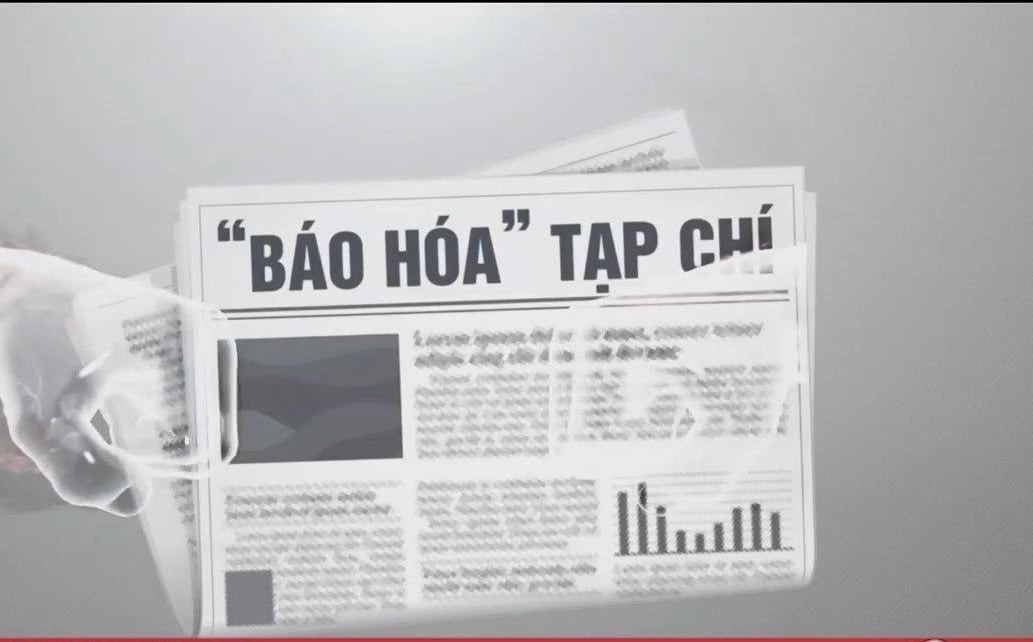
The story of the economy, full of pressure, is one of the important reasons leading to the mistakes of the press in recent times. (Photo: vtv)
Mr. Hung cited that the 2016 Press Law has provisions creating a legal corridor for the development of the press economy, specifically in Article 21 "Types of activities and sources of revenue of press agencies"; Article 37 "Links in press activities". However, these provisions are still incomplete and not specific, leading to confusion in press agencies' operations, on the other hand, creating conditions for some press agencies and some journalists to take advantage of and violate. Specifically as follows: Clause 1, Article 21 of the 2016 Press Law stipulates: "Press agencies operate in the form of revenue-generating public service units. Scientific journals operate in accordance with the type of governing agency".
A revenue-generating public service unit is a type of public service unit with revenue sources, established by a competent state agency and is an independent budget unit, with its own seal and account, and the organization of the accounting apparatus is implemented according to the provisions of the Accounting Law. However, because it is identified as a service unit, press agencies must comply with economic and financial regulations like other service units, for example, the corporate income tax rate is from 10-20%, while still having to perform the function of information and propaganda according to political tasks.
Journals of social organizations, socio-professional organizations, and research institutes (not affiliated to state agencies, political organizations, or socio-political organizations) are not public service units. However, the Press Law has not yet regulated the types of scientific journals, but only generally stipulates that “operations must be appropriate to the type of the governing body”, leading to difficulties for journals in economic development.
"The issue of clearly distinguishing the type of revenue-generating public service unit of press agencies from the type (which can be considered as an enterprise) for magazines is extremely important. If magazines are considered as enterprises, they will comply with the provisions of economic law, and there may be conflicts with the provisions of the Press Law," Mr. Hung said.

The Press Law is an important basis for press agencies and journalists to operate.
Besides, according to Dr. Dong Manh Hung, considering magazines as businesses will lead to difficulty in controlling and directing propaganda content. However, if they are not businesses, then what model do magazines operate under? This is a crucial issue in correcting the situation of "newspaperization" of magazines, "newspaperization" of general electronic information sites, "newspaperization" of social networks of the press in general in recent times.
The Press Law is an important basis for press agencies and journalists to operate. With new and important issues such as press economics, specific regulations are needed, and if possible, they can be included in a chapter of the law. "Only when there are specific regulations can press agencies promote their economic role and do press economics in a healthy way, contributing to creating a green press environment as we desire," Dr. Dong Manh Hung affirmed.
Speaking at the recent National Scientific Conference "Scientific basis and practice of amending the Press Law 2016", Deputy Minister of Information and Communications Nguyen Thanh Lam said that one of the issues that needs to be clarified from a scientific perspective is press economics. When this phrase is said, many people still think it is a new concept and ask why the press raises economic issues, while the function of the press is to carry out political tasks?
Deputy Minister Lam said that the press agency has two roles: participating in protecting the regime and providing essential public services and information. There needs to be a scientific basis to level the relationship between the press agency and the governing body and, more importantly, the state as a major customer of the press.
"There needs to be specific, scientific regulations so that when presented, it can convince all levels, sectors, and society, when the story of journalism and journalism economics is still a painful issue," Deputy Minister Lam commented.
Phan Hoa Giang
Source




![[Photo] Hanoi morning of October 1: Prolonged flooding, people wade to work](https://vphoto.vietnam.vn/thumb/1200x675/vietnam/resource/IMAGE/2025/10/1/189be28938e3493fa26b2938efa2059e)

![[Photo] President of the Cuban National Assembly visits President Ho Chi Minh's Mausoleum](https://vphoto.vietnam.vn/thumb/1200x675/vietnam/resource/IMAGE/2025/10/1/39f1142310fc4dae9e3de4fcc9ac2ed0)
![[Photo] Keep your warehouse safe in all situations](https://vphoto.vietnam.vn/thumb/1200x675/vietnam/resource/IMAGE/2025/10/1/3eb4eceafe68497989865e7faa4e4d0e)


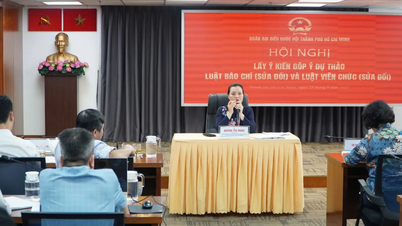

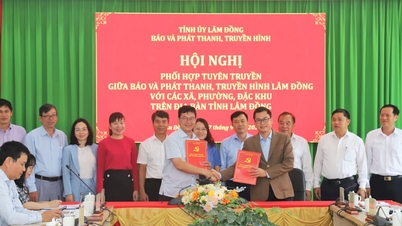






























































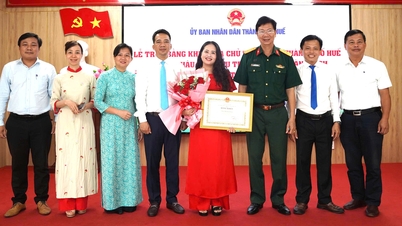

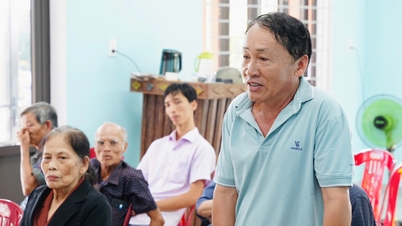
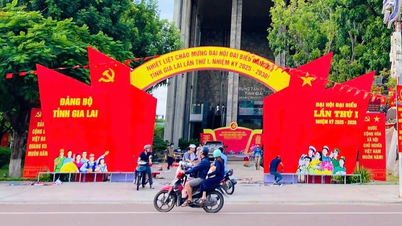




















Comment (0)